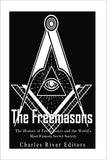French Indochina: The History and Legacy of the French Empire's Colonialism in Southeast Asia
ISBN: 9781720899099
$9.99
*Includes pictures
*Includes online resources and a bibliography for further reading
*Includes a table of contents
“Without Empire France today would only be a liberated country. Thanks to her Empire she is today a victorious country.” – French Guianan lawyer and politician, Gaston Monnerville
The U.S. Naval Station Argentia, located in Placentia Bay, a sheltered harbor on Newfoundland Island, was the unlikely setting for one of the most pivotal summit meetings of the 20th century. The meeting took place on August 9, 1941. World War II was in its second year, the British had won the Battle of Britain, but were still encircled by German U-Boats, and the British fleet was being decimated in the North Atlantic. In North Africa, a contest of armor was underway as Axis and Allied armies fought for control of Egypt, while Britain and her Commonwealth allies stood alone against the mighty German Wehrmacht.
Roosevelt, however, pictured a very different post-war world than his British counterpart, Winston Churchill. When he and Churchill met at what came to be known as the Atlantic Conference, Churchill’s pleas for U.S. manpower and aid were accepted, but only under clear conditions. If the United States was to come to the aid of Britain, it would be for the purpose of defeating the Germans and the Japanese and not to support the insupportable institutions of empire. Britain and, by extension, France and Portugal, the only remaining major European shareholders in foreign empire, would have to commit to decolonization as a basic prerequisite of substantial U.S. assistance.




